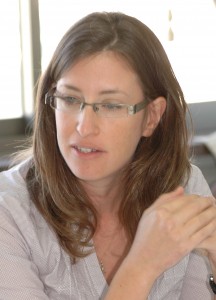Participants
Warning: Use of undefined constant yarpp_related - assumed 'yarpp_related' (this will throw an Error in a future version of PHP) in /home/bu1lq82sfmnc/domains/traffickingroundtable.org/html/wp-content/plugins/related-posts-slider/related-posts-slider.php on line 171
Warning: Use of undefined constant yarpp_related - assumed 'yarpp_related' (this will throw an Error in a future version of PHP) in /home/bu1lq82sfmnc/domains/traffickingroundtable.org/html/wp-content/plugins/related-posts-slider/related-posts-slider.php on line 295
Aziza Ahmed, Northeastern University School of Law
Professor Ahmed teaches reproductive and sexual health and rights, international health law, and property. Her research areas include health and law (international and domestic), human rights, and sexual and reproductive health and rights. Professor Ahmed′s scholarship is interdisciplinary, and often draws from both public health and legal methodologies and literature. Alongside her work on public health, Professor Ahmed also writes about the changing global landscape of Muslim minorities after 9/11. Professor Ahmed holds a law degree from the University of California Berkeley, a master′s of science in population and international health from the Harvard School of Public Health, and a BA from Emory University.
Prior to joining the Northeastern faculty, Professor Ahmed was a research associate at the Harvard School of Public Health Program on International Health and Human Rights. She came to that position after a Women’s Law and Public Policy Fellowship with the International Community of Women Living with HIV/AIDS (ICW). At ICW, Professor Ahmed engaged in numerous human rights projects pertaining to HIV and AIDS. Professor Ahmed has worked on human rights and social justice issues in South Africa, Namibia, the Caribbean, India and the United States. She has worked with and for various United Nations agencies, international and domestic non-governmental organizations.
Professor Ahmed is currently a member of the Technical Advisory Group on HIV and the Law convened by the United Nations Development Programme (UNDP). She has also served as an expert for the American Bar Association. Professor Ahmed continues to support the work of many civil society organizations domestically and internationally.
Professor Ahmed's Publications
Aziza Ahmed. “Criminalising Consensual Sexual Behaviour in the Context of HIV: Consequences, Evidence and Leadership,” 6 Global Public Health 357 (2011) (co-authored)
Aziza Ahmed. “HIV and Women: Incongruent Policies, Criminal Consequences,” 6 Yale Journal of International Affairs 32 (2011). HIV and Women
Aziza Ahmed. “Protecting HIV Positive Women’s Human’s Rights: Recommendations for the Obama Administration,” (with Hanssens and Kelly) 17 Reproductive Health Matters 127 (2009). Protecting HIV-Positive Women’s Human Rights-Recommendations for the United States National HIV-AIDS Strategy
Aziza Ahmed. “Answering the Millennium Call for Universal Health: Eliminating User Fees,” (with Hall and Swanson) 62 Yale Hum. Rts. & Dev L.J. L.J. 12 (2009).
Aziza Ahmed. “Dual Subordination: Muslim Sexuality in Secular and Religious Legal Discourse in India,” Paper 7 Muslim World Journal of Human Rights 4.1 (2007). Dual Subordination- Muslim Sexuality in Secular and Religious Legal Discourse in India
Aziza Ahmed. “Feminism, Power, and Sex Work in the Context of HIV/AIDS: Consequences for Women’s Health,” Harvard Journal of Law and Gender (2011). Feminism Power and Sex
Aziza Ahmed. Criminal Law and HIV: The Case of Sex Work, Sodomy Laws, and HIV Transmission and Exposure (with Warner, Kaplan, Kisimodi, and Symington) (forthcoming).
Elizabeth Bernstein, Barnard College
Elizabeth Bernstein, Associate Professor of Women’s Studies and Sociology, joined the faculty of Barnard in September, 2002. Her teaching includes such courses as Gender and Power in Transnational Perspective; The Sociology of Gender; and The Sociology of Sexuality. Professor Bernstein’s research and teaching focus on the sociology of gender and sexuality; the sociology of law; and contemporary social theory. Her current research explores the convergence of feminist, neoliberal, and evangelical Christian interests in the shaping of contemporary U.S. policies around the traffic in women. Her research and scholarship have been recognized by awards from the Institute for Advanced Study, the National Science Foundation, the Social Science Research Council, AAUW, the Mellon Foundation, and the American Sociological Association.
Professor Bernstein's Publications
Elizabeth Bernstein. “Militarized Humanitarianism Meets Carceral Feminism: The Politics of Sex, Rights, and Freedom in Contemporary Anti-Trafficking Campaigns,” Signs: Journal of Women in Culture and Society, special issue on Feminists Theorize International Political Economy, guest edited by Kate Bedford and Shirin Rai (2010): 36:1, 45-71. Militarized Humanitarianism Meets Carceral Feminism
Elizabeth Bernstein. What’s Wrong with Prostitution? What’s Right with Sex Work? Comparing Markets in Female Sexual Labor. 10 Hastings Women’s L.J. 91. Winter, 1999. What’s Wrong with Prostitution–What’s Right with Sex Work
Elizabeth Bernstein. Sexual Commerce and the Global Flow of Bodies, Desires, and Social Policies. Guest Editor, special issue of Sexuality Research and Social Policy, December (2008).
Elizabeth Bernstein. Temporarily Yours: Sexual Commerce in Post-Industrial Culture, University of Chicago Press (2007).
Elizabeth Bernstein. Regulating Sex: the Politics of Intimacy and Identity, co-editor, with Laurie Schaffner. Routledge (2004).
Elizabeth Bernstein. “Sexual Commerce and the Global Flow of Bodies, Desires, and Social Policies.” Sexuality Research and Social Policy, 5:4, 1-5 (2008). Sexual Commerce and the Global Flow of Bodies, Desires, and Social Policies.
Elizabeth Bernstein. “Buying and Selling the ‘Girlfriend Experience': the Social and Subjective Contours of Market Intimacy.” In Mark Padilla and Richard Parker, eds., Love and Globalization: Transformations of Intimacy in the Contemporary World. Vanderbilt University Press. (2007).
Elizabeth Bernstein. “Sex Work for the Middle Classes,” Sexualities, 10:3, 473-488 (2007). Sex Work for the Middle Classes
Elizabeth Bernstein. “The Sexual Politics of the ‘New Abolitionism’.” Differences: Journal of Feminist Cultural Studies, 18:3, 128-151 (2007). The Sexual Politics of the ‘New Abolitionism’
Elizabeth Bernstein. “The Transformation of Sexual Commerce and Urban Space in San Francisco.” Footnotes: Journal of the American Sociological Association (2004). The Transformation of Sexual Commerce and Urban Space in San Francisco
Elizabeth Bernstein. “The Meaning of the Purchase: Desire, Demand, and the Commerce of Sex,” Ethnography Vol. 2, no. 3: 375-406 (2001). The Meaning of the Purchase Desire, Demand, and the Commerce of Sex 1, The Meaning of the Purchase Desire, Demand, and the Commerce of Sex 2
Elizabeth Bernstein. Regulating Sex: the Politics of Intimacy and Identity, co-editor with Laurie Schaffner, Routledge (2004).
Denise Brennan, Georgetown University

Denise Brennan
Denise Brennan is a cultural anthropologist whose research is informed by three concerns: migration, gender and labor. While these topics may be pursued across disciplines, anthropologists’ ethnographic methods enable Dr. Brennan to analyze their local contexts as they connect to larger forces of change. Her research illuminates urgent human rights concerns such as trafficking, women’s poverty, and migrant labor exploitation. She is currently a fellow at the Woodrow Wilson International Center for Scholars. Dr. Brennan’s current book project builds on her activities as both a researcher and an activist on issues related to women’s work and women’s migration in the global economy.
Professor Brennan's Publications
Books
Brennan, Denise. Life Interrupted: Trafficking into Forced Lab or in the United States. Duke University Press, 2014.
Brennan, Denise. What’s Love Got to Do with It? Transnational Desires and Sex Tourism in the Dominican Republic. Durham: Duke University Press, 2004.
Articles in journals
Brennan, Denise. “Ending Forced Labor by Securing Immigrant Workers’ Rights .” Centerpoint, The Newsletter of the Woodrow Wilson Center (2010). Ending Forced Labor by Securing Immigrant Workers’ Rights Wilson Center
Brennan, Denise. “Thoughts on Finding and Assisting Individuals in Forced Labor in the USA.” Sexualities 13.2 (2010): 139-152.
Brennan, Denise. “Key Issues in the Resettlement of Formerly Trafficked Persons in the United States.” University of Pennsylvania Law Review. Special Edition: “Trafficking in Sex and Labor: Domestic and International Responses. 158.6 (2010): 1581-1608.
Brennan, Denise. “Competing Claims of Victimhood?: Foreign and Domestic ’Victims’ of Trafficking in the United States.” Sexuality Research and Social Policy 5.4 (2008): 45-61. Competing Claims of Victimhood Foreign and Domestic ’Victims’ of Trafficking to the United States
Brennan, Denise. “Methodological Challenges in Research on Human Trafficking: Tales from the Field.” International Migration 43.1/2 (2005): 35-54. Methodological Challenges in Research on Human Trafficking: Tales from the Field
Brennan, Denise. “Women Work, Men Sponge and Everyone Gossips: Macho Men and Stigmatized/ing Women in A Sex Tourist Town.” Anthropological Quarterly 77.4 (2004): 705-33. Women Work, Men Sponge and Everyone Gossips: Macho Men and Stigmatized/ing Women in A Sex Tourist Town
Brennan, Denise. “Tourism in Transnational Places: Dominican Sex Workers and German Sex Tourists Imagine One Another.” Identities: Global Studies in Culture and Power 7.4 (2001): 621-663. Tourism in Transnational Places
Articles in books
Brennan, Denise. “Sex Tourism and Women’s Economic Opportunities in a Globalized Economy.” Sex For Sale: Prostitution, Pornography, and the Sex Industry. Second Edition. Ed. Ronald Weitzer. New York and London: Routledge, 2009.
Brennan, Denise. “Love Work in Sex Work (and After): Performing at Love.” Between Love and Sex: Intimacies in Cross-Cultural Perspective. Ed. William Jankowiak. New York: Columbia University Press, 2008.
Brennan, Denise. “Love Work in a Tourist Town: Dominican Sex Workers and Resort Workers Perform at Love.” Love and Globalization: Transformations of Intimacy in the Contemporary World. Ed. Padilla, Mark B. et al.. Nashville, TN: Vanderbilt University Press, 2007.
Brennan, Denise. “When Sex Tourists and Sex Workers Meet: Encounters within Sosúa, the Dominican Republic’s Sexscape.” Tourists and Tourism. Ed. Sharon Gmelch. Prospect Heights, IL: Waveland Press, 2003.
Brennan, Denise. “Selling Sex for Visas: Sex Tourism as Stepping Stone to International Migration for Dominican Women.” Global Woman: Nannies, Maids, and Sex Workers in the New Economy. Ed. Barbara Ehrenreich and Arlie Russell Hochschild. New York: Metropolitan Books, 2002.
Brennan, Denise. “Globalization, Women’s Labor and Men’s Pleasure: Sex Tourism in Sosúa, the Dominican Republic.” Urban Life: Readings in Urban Anthropology. Ed. George Gmelch and Walter P. Zenner. Prospect Heights, IL: Waveland Press, 2002.
Florrie Burke, Freedom Network
Florrie Burke is a consultant on Human Trafficking and Modern Day Slavery to both governmental and non governmental agencies. She is a founding member and currently a Co-Chair of the Freedom Network, serves as the Coordinator of the Freedom Network Training Institute and is on the Steering Committee of the NY Anti-Trafficking Network. She has done extensive training, speaking and consultation on Human Trafficking issues, trauma and torture both nationally and internationally. She has served as an Expert Witness on several high profile cases of Human Trafficking. She is a member of the Expert Initiative on Human Trafficking at the UNODC in Vienna and is part of three working groups developing materials for first responders and others who may encounter Human Trafficking. Ms. Burke has been working with trafficked persons since 1997 when she designed and implemented specialized social services to sixty deaf Mexicans who were held in slavery in a peddling ring in NYC. She helped start the Anti-Trafficking Program at Safe Horizon in 2001 and also designed and implemented a model for Community Trauma Response following the attacks on September 11th. In 2007 Ms. Burke received the National Crime Victims Recognition Service Award from the Department of Justice, Office for Victims of Crime. She has been honored by the Civil Rights Division of the Department of Justice, by the Wage and Hour Division of the U.S. Department of Labor and was awarded the Annual Paul and Sheila Wellstone Award by the Freedom Network USA.
Florrie Burke's Publications
Sea-Ling Cheng, Wellesley College
Sea-Ling Cheng is an anthropologist whose current research focuses on issues of sexuality, prostitution, migration, trafficking, and human rights. She has conducted research in South Korea, the Philippines, Hong Kong and Shanghai. Before coming to Wellesley, she taught at the University of Hong Kong as a Visiting Assistant Professor in 2002-2003. She first arrived in the US in 2003 to take up a Rockefeller Postdoctoral Fellowship in the Program for the Study of Sexuality, Gender, Health, and Human Rights at Columbia University. Professor Cheng’s works have appeared in the following journals: Health and Human Rights, International Feminist Journal of Politics, East Asia, and Asia-Pacific Viewpoint. Some of my works have appeared in Chinese, or translated into Korean. She is currently working on her manuscript “Transnational Desires: Filipina Entertainers in US Military Camp Towns in South Korea.”.
Professor Cheng's Publications
“Popularizing Purity: Gender, Sexuality, and Nationalism in HIV/AIDS prevention for South Korean Youths.” Asia Pacific Viewpoint. Vol.46 (1):7-20.
“Interrogating the Absence of HIV/AIDS Prevention for Migrant Sex Workers in South Korea.” Health and Human Rights (2004) Vol 7(2). Interrogating the Absence of HIV_AIDS Prevention for Migrant Sex Workers in South Korea
“Vagina Dialogues?: Critical Reflections from Hong Kong on The Vagina Monologues as a Worldwide Movement” in International Feminist Journal of Politics (2004) Vol 6(2).
“‘R & R’ on a ‘Hardship Tour’: GIs and Filipina Enteratiners in South Korea” in American Sexuality, Issue 5.
“Changing Lives, Changing Selves: ‘Trafficked’ Filipina Entertainers in Korea” in Anthropology in Action 2002. Vol 9 (1): 13-20.
“Korean Men’s Passions for Manhood” in Contemporary Criticism. 2002. Vol 20:255-276. (Translated into Korean)
“Learning to Love, Dying for Love” in Magdalena House (ed) (2002) Courageous Women who Ride the Wolves. Seoul: Sam-in Publisher (With Support from the Korea Human Rights Foundation). (Translated into Korean)
“Assuming Manhood: Prostitution and Patriotic Passions in Korea” in East Asia: an international quarterly (2001) Vol 18(4):40-78. Assuming Manhood Prostitution and Patriotic Passions in Korea
“Muckraking and Stories Untold: Ethnography Meets Journalism on Trafficked Women and the US Military” in Sexuality Research & Social Policy (2008) Vol 5(4):6-18. Muckraking and Stories Untold
“Commentary on Hughes, Chon, and Ellerman” in Violence Against Women (2008) Vol 14(3): 359-363. Commentary on Hughes
Janie Chuang, American University Washington College of Law
Janie Chuang is an Associate Professor of Law at American University Washington College of Law and a current Fellow of the Open Society Foundations. Professor Chuang teaches courses in international law, human trafficking, international commercial arbitration, and gender and labor migration. In her scholarship, Professor Chuang specializes in issues relating to gender and labor migration, specifically, trafficking in women. As an advisor on trafficking issues for the UN Office of the High Commissioner for Human Rights, Professor Chuang participated in the drafting of the UN Trafficking Protocol to the UN Convention on Transnational Organised Crime, advocating for the inclusion of human rights protections for trafficked persons. Prior to joining WCL in 2004, Professor Chuang practiced with the law firm of Cleary, Gottlieb, Steen & Hamilton, representing foreign governments in international litigation/arbitration and pro bono clients in asylum and human rights cases. Professor Chuang is the U.S. Member of the International Law Association’s Feminism and International Law Committee. Professor Chuang has served on the Executive Council of the American Society of International Law, and as Co-Chair of the Women in International Law Interest Group of the American Society of International Law.
Professor Chuang's Publications
Janie Chuang, The U.S. Au Pair Program: Labor Exploitation and the Myth of Cultural Exchange, 36 HARV. J. L. & GENDER ___ (forthcoming June 2013).
Janie Chuang (with Anne Gallagher), The Use of Indicators to Measure Government Response to Human Trafficking, Indicators as A Technology of Global Governance (Kevin Davis, Benedict Kingsbury, Sally Engle Merry, eds., 2012).
Janie Chuang, Article 6, The UN Convention on the Elimination of All Forms of Discrimination Against Women: A Commentary (Marsha Freeman, Christine Chinkin, & Beate Rudolf, eds., 2012).
Janie Chuang, Article 6, The UN Convention on the Elimination of All Forms of Discrimination Against Women: A Commentary (Marsha Freeman, Christine Chinkin, & Beate Rudolf, eds.) (2012).
Janie Chuang, Rescuing Trafficking from Ideological Capture: Prostitution Reform and Anti-Trafficking Law and Policy, University of Pennsylvania Law Review, Vol. 158, 2010.
Janie Chuang, Achieving Accountability for Migrant Domestic Worker Abuse, North Carolina Law Review, Vol. 88, 2010.
Janie Chuang, The United States as Global Sheriff: Using Unilateral Sanctions to Combat Human Trafficking, Michigan Journal of International Law, Vol. 27, No. 2, Winter 2006.
Janie Chuang, Beyond a Snapshot: Preventing Human Trafficking in the Global Economy, Indiana Journal of Global Legal Studies, Vol. 13, No. 1, Winter 2006.
Janie Chuang. Human Trafficking (panel summary), Proceedings of the 99th meeting of the American Society of International Law (Lawrence Helfer & Rae Lindsay, eds., 2005).
Janie Chuang. Redirecting the Debate over Trafficking in Women: Definitions, Paradigms, and Contexts. 11 Harv. Hum. Rts. J. 65 (1998).
Anne T. Gallagher
Dr. Anne Gallagher is a global authority on the international legal and policy aspects of human trafficking and related exploitation. She served as a career UN official from 1992 to 2003 working with the Office of the High Commissioner for Human Rights. In 1998 she was appointed Special Adviser on Human Trafficking to Mary Robinson, the United Nations High Commissioner for Human Rights. In that capacity she represented the High Commissioner in the negotiations for the UN Organized Crime Convention and its Protocols on Trafficking and Migrant Smuggling. More recently, She completed the definitive legal commentary to the United Nations Principles and Guidelines on Human Rights and Human Trafficking.
Professor Gallagher's Publications
A Gallagher and R Surtees, ‘Measuring the Success of Anti-trafficking Interventions in the Criminal Justice Sector: Who Decides – and How? 1 Anti-Trafficking Review (2012).
Gallagher, ‘Guest Editorial”, 1 Anti-Trafficking Review (2012).
Anne T. Gallagher. The International Law of Human Trafficking, Cambridge University Press (2010).
Anne T. Gallagher. Understanding Exploitation, Harvard International Review (2011).
Anne T. Gallagher. Improving the Effectiveness of the International Law of Human Trafficking: A Vision for the Future of the US Trafficking in Persons Reports, Human Rights Review (2010).
Anne T. Gallagher. The right to an effective remedy for victims of trafficking in persons: A Survey of International Law and Policy, United Nations Office of the High Commissioner for Human Rights (2010).
Anne T. Gallagher and Elaine Pearson. “The High Cost of Freedom: A Legal and Policy Analysis of Shelter Detention for Victims of Trafficking” Human Rights Quarterly 32.1 (2010): 73-114.
Anne T. Gallagher. “Human Rights and Human Trafficking: Quagmire or Firm Ground? A Response to James Hathaway” Virginia Journal of International Law 49.4 (2009): 789-848.
Anne T. Gallagher and Paul Holmes. “Developing an Effective Criminal Justice Response to Human Trafficking: Lessons from the Front Line” International Criminal Justice Review 18.3 (2008): 318-343.
Anne T. Gallagher. “A Shadow Report on Human Trafficking in Lao PDR: The U.S. Approach v. International Law” Asian and Pacific Migration Journal 16.1 (2007).
Anne T. Gallagher. “Recent Legal Developments in the Field of Human Trafficking: A Critical Review of the 2005 European Convention and Related Instruments” European Journal of Migration and Law 8 (2006): 163-189.
Anne T. Gallagher. “Using International Human Rights Law to Better Protect Victims of Trafficking: The Prohibitions on Slavery, Servitude, Forced Labour and Debt Bondage” THE THEORY AND PRACTICE OF INTERNATIONAL CRIMINAL LAW: ESSAYS IN HONOUR OF M. CHERIF BASSIOUNI. Ed. L. N. Sadat and M. P. Scarf. Leiden: Martinus Nijhoff, 2008. 397-430
Janet Halley, Harvard Law School
Janet Halley is the Royall Professor of Law at Harvard Law School. She has a Ph.D. in English Literature from UCLA and a J.D. from Yale Law School. She has taught at Tel Aviv Buckmann School of Law and in the Law Department of the American University in Cairo. She is the author of Split Decisions: How and Why to Take a Break from Feminism (Princeton 2006), and Don’t: A Reader’s Guide to the Military’s Anti-Gay Policy (Duke 1999). With Wendy Brown, she coedited Left Legalism/Left Critique (Duke 2002), and with Andrew Parker she coedited After Sex? New Writing Since Queer Theory (Duke 2011). She is the editor of a collection of essays entitled Critical Directions in Comparative Family Law, 58 American Journal of Comparative Law, and the author of “What is Family Law?: A Genealogy,” published last year in the Yale Journal of Law and the Humanities. Her current book projects are The Family/Market Distinction: A Genealogy and Critique and Rape in Armed Conflict: Assessing the Feminist Vision and its Law. She is co-director of the Trafficking Roundtable and of the Up Against Family Law Exceptionalism Conference, an international collaboration dedicated to studying the role of the family and family law in colonization, decolonization and contemporary globalization. She was recently awarded the Career Achievement Award for Law and the Humanities by the Association for the Study of Law, Culture and the Humanities. She teaches Family Law, Gender and the Family in Transnational Legal Orders, Gender in Postcolonial Legal Orders, Trafficking and Labor Migration, and courses on the intersections of legal theory with social theory.
Professor Halley's Publications
In progress
The Family/Market Distinction: A Legal History and Critical Deconstruction (book ms).
Governance Feminism: Sexual Violence and the International Feminist Establishment (book ms).
“Rewriting Rape II: Feminist Reforms in the Prosecution and Adjudication of Sexual Violence in Armed Conflict” (article MS).
In press
“Behind the Law of Marriage, Part II: Travelling Marriage,”– Unbound: A Journal of the Legal Left – (in press)
In print
“Le Genre Critique: Comment (Ne Pas) Genrer Le Droit?”, trans. Vincent Forray, 2011 Jurisprudence: Revue Critique 109.
“What is Family Law?: A Genealogy, Part I”, 23 Yale Journal of Law & the Humanities 1 (2011) and “What is Family Law?: A Genealogy, Part II”, — 23 Yale Journal of Law & the Humanities 189 (2011)
With Andrew Parker, eds., After Sex? On Writing Since Queer Theory, with an introduction by the editors (Duke University Press, 2011). This volume revises the following: With Andrew Parker, eds., After Sex? New Writing Since Queer Theory, special issue of South Atlantic Quarterly, 106:3 SAQ 421 (2007), with an introduction by the editors.
Special Issue Editor, Critical Directions in Comparative Family Law, an edition of eight articles with an introduction by J. Halley and Kerry Rittich, “Critical Directions in Comparative Family Law: Genealogies and Contemporary Studies of Family Law Exceptionalism,” 58 American Journal of Comparative Law 753 (2010). ***LInk to SSRN abstract***
“Does Law have an Outside?”, Osgoode Hall Law School Comparative Research in Law & Political Economy Research Paper No. 7(1) 2010.
Editor, Tribute to Eve Kososfky Sedgwick, an edition of five short essays with an introduction by J. Halley, “A Tribute from Legal Studies to Eve Kosofsky Sedgwick: Introduction,” 33 Harvard Journal of Law and Gender 309 (2010)
“Note sulla Costruczione del Sistema delle Relazioni di Coppia: Un Saggio di Realismo Guiridico, XXVII-4 Revista Critica del Diritto Privato.515 (Dicembre 2009).
“My Isaac Royall Legacy,” 24 Harvard Blackletter Law Journal 117 (2008).
With Rose Moss, eds., Words: From the HLS Creative Writer’s Group, Spring 2006 (Afar, 2006).
Split Decisions: How and Why to Take a Break from Feminism (Princeton University Press, 2006). Excerpted in Cynthia grant Bowman, Laura A. Rosenbury, Deborah Tuerkheimer and Kimberly A. Yuracko, Feminist Jurisprudence: Cases and Materials (West, 2010).
“The Politics of Injury: A Review of Robin West’s Caring for Justice,” in unbound (Spring 2005).
“Of Time and the Pedagogy of Critical Legal Studies,” in Duncan Kennedy, Legal Education and the Reproduction of Hierarchy (reissue; NYU Press 2004).
“Take a Break from Feminism?”, in Karen Knop, ed., Gender and Human Rights (Oxford: Oxford U.P. 2004).
Partially reprinted in Katharine T. Bartlett and Deborah L. Rhode, Gender and Law: Theory, Doctrine,Commentary (Cambridge, MA: Aspen Publishers, 2006).
Left Legalism/Left Critique, co-edited with Wendy Brown, Duke University Press, 2002.
“Introduction” to Left Legalism/Left Critique, coauthored with Wendy Brown.
“Sexuality Harassment,” various short essays in:
Left Legalism/Left Critique, co-edited with Wendy Brown, Duke University Press, 2002, pp. 80-104.
Rpt. in Stephen E. Gottlieb, Brian Bix, Timothy D. Lytton and Robin L. West, Jurisprudence, Cases and Materials: An Introduction to the Philosophy of Law and its Applications (Newark, NJ: LexisNexis, 2006).
5-6 Working Papers in Gender/Sexuality Studies 182-207 (June 1999) (Center for the Study of Sexualities at the National Central Univesity, Chungli,Taiwan) (in Chinese)
“Sexuality Harassment. Omosessualita e molestie davanti alla Corte Suprema degli Stati Uniti,” Revista Critica del Diritto Privato, Anno XX – 4 Dicembre 2002 (trimestrale), pp. 609-635 (in Italian).
Catharine A. MacKinnon and Reva B. Siegel, eds. Directions in Sexual Harassment Law, Yale University Press (New Haven: Yale U.P., 2003).
In Memoriam: David Charny, 114 Harvard L. Rev. 2232 (2001).
“Sexual Orientation and the Armed Forces” and “Romer v. Evans,” in Encyclopedia of the American Constitution: Volume II, ed. Leonard W. Levy, Kenneth L. Karst and Adam Winkler (MacMillan Reference) (in press).
Don’t: A Reader’s Guide to the Military’s Anti-Gay Policy (Duke Univ. Press, 1999).
Don’t substantially revises the following earlier publication: “The Status/Conduct Distinction in the 1993 Revisions to Military Anti-Gay Policy: A Legal Archaeology,” 3 GLQ: A Journal of Lesbian and Gay Studies 159 (1996).
Introductory Essay on the Tenth Anniversary of the Yale Journal of Law & the Humanities, — Yale Journal of Law & the Humanities — (1998).
“Gay Rights and Identity Imitation: Issues in the Ethics of Representation,” in David Kairys, ed., The Politics of Law, 3rd ed. (Temple Univ. Press, 1998).
“Culture Constrains,” in Is Multiculturalism Bad For Women?, by Susan Muller Okin, Joshua Cohen (ed.), and Martha C. Nussbaum (ed.) (Princeton Univ. Press 1999)
Originally published in the Boston Review, November 1997, pp. 39-40.
“Romer v. Hardwick,” 68 Colorado Law Review 429 (1997).
“The Sexual Economist and Legal Regulation of the Sexual Orientations,” in Laws & Nature: Shaping Sex, Preference and Family, eds. David M. Estlund and Martha C. Nussbaum (Oxford Univ. Press, 1997).
Introduction, Yale Journal of Law & the Humanities special issue on Law, Culture and Sexual Orientation (1996).
Excerpted in in Sexuality, Gender and the Law, ed. William N. Eskridge, Jr. and Nan D. Hunter (Foundation, 1997); to be excerpted in John H. Garvey and T. Alexander Aleinikoff, eds., Modern Constitutional Theory: A Reader, 4th ed. (West, 1999).
“Bowers v. Hardwick in the Renaissance,” in Queering the Renaissance, ed. Jonathan Goldberg (Duke Univ. Press, 1994).
Excerpted in A Consitutional Law Anthology, ed. Michael J. Glennon, Donald E. Lively, Phoebe A. Haddon, Dorothy E. Roberts and Russell L. Weaver, 2d ed. (Anderson, 1997); and in Sexuality, Gender and the Law, ed. William N. Eskridge, Jr. and Nan D. Hunter (Foundation, 1997).
Excerpted and translated as “Razonar sobre la sodomía: acto e identidad en y después Bowers v. Hardwick in Crítica Juridíca: Teoría y Sociología Juridica en los Estados Unidos, ed. Mauricio García Villegas, Isabel Christina Jaramillo Sierra, and Esteban Restrepo Saldarriaga (Magdalena Holguín – Bogotá: Universitad de los Andes, Facultad de Derecho, Ediciones Uniandes, 2005).
“The Construction of Heterosexuality,” in Fear of a Queer Planet: Queer Politics and Social Theory, ed. Michael Warner (University of Minnesota Press, 1993).
“Misreading Sodomy: A Critique of the Classification of ‘Homosexuals’ in Federal Equal Protection Law,” in Bodyguards: The Cultural Politics of Gender Ambiguity, eds. Julia Epstein and Kristina Straub (Routledge, 1991).
“The Politics of the Closet: Towards Equal Protection for Gay, Lesbian and Bisexual Identity,” 36 UCLA Law Review 915 (1989).
Reprinted in Reclaiming Sodom, ed. Jonathan Goldberg (Routledge, 1994); in After Identity: Essays in Law and Culture, eds. Dan Danielsen and Karen Engle (Routledge, 1994); in Homosexuality and the Constitution: Volume 2: Homosexuals and the Military, ed. Arthur S. Leonard (Garland, 1997).
Seeking the Woman in Late Medieval and Renaissance Literature: Essays in Feminist Contextual Criticism, co-edited with Sheila Fisher, University of Tennessee Press, 1989. Including:
“The Lady Vanishes: The Problem of Women’s Absence in Late Medieval and Renaissance Texts,” with Sheila Fisher.
“Textual Intercourse: Anne Donne, John Donne, and the Sexual Poetics of Textual Exchange.”
“Female Autonomy in Milton’s Sexual Poetics,” in Milton and the Idea of Woman, ed. Julia Walker (Urbana: Univ. of Illinois Press 1988).
Reprinted in John Milton, Paradise Lost: An Authoritative Text, Backgrounds and Sources, and Criticiam (A Norton Critical Edition), ed. Scott Elledge (2d ed.) (New York: Norton, 1992).
Reprinted in Representing the Renaissance, ed. Stephen Greenblatt (Berkeley: University of California Press, 1987).
“Sir Thomas Browne’s The Garden of Cyrus and the Real Character,” 15.1 English Literary Renaissance (Winter 1985).
Reprinted in Renaissance Historicism, ed. Arthur F. Kinney and Dan S. Collins (Amherst: Univ. of Massachusetts Press, 1988).
“Censored Discourse: The Politics of Familist Language,” in Persons in Groups: Social Behavior as Identity Formation, ed. Richard C. Trexler (Medieval and Renaissance Texts and Studies, SUNY Binghamton, 1985).
“Versions of the Self and the Politics of Privacy in Vaughan’s Silex Scintillans,” George Herbert Journal 7:1-2 (Fall 1983-Spring 1984) (special issue on Vaughan, ed. Jonathan F.S. Post).
“‘Harmonious Sisters, Voice and Verse': Women and Fiction in Milton’s Early Verse,” in Sisterhood Surveyed: Proceedings of the Mid-Atlantic Women’s Studies Association, ed. Anne D. Sessa (West Chester University, 1983).
“Voice and Sign in Seventeenth-Century English Literature: Studies in Donne, Vaughan, Browne and Milton,” dissertation, directed by Professor Christopher Grose (University of California at Los Angeles, 1980).
Dina Haynes, New England School of Law

Dina Francesca Haynes
Dina Francesca Haynes teaches Constitutional Law, Immigration Law, The Law and Ethics of Lawyering, International Women’s Issues, and Refugee and Asylum Law at New England School of Law. She previously taught at Georgetown University Law Center, American University’s Washington College of Law, and the University of Nevada at Las Vegas. Before teaching, she served as director general of the Human Rights Department for the Organization for Security and Cooperation in Europe in Bosnia-Herzegovina and as human rights adviser to the OSCE in Serbia and Montenegro. She also served as a protection officer with the United Nations High Commissioner for Refugees in Croatia. Professor Haynes was an assistant district counsel with the United States Department of Justice in the Honor Program and clerked on the Constitutional Court of South Africa. She researches and writes in the areas of international law, international organizations, international civil servants, immigration law, human rights law, human trafficking, post-conflict reconstruction, humanitarian law, and migration.
Professor Haynes' Publications
Dina Francesca Haynes. Neoliberalism and Women’s Rights, in Feminist Perspectives in Transitional Justice, Martha Fineman, ed, (Intersentia: Amsterdam 2011)
Dina Francesca Haynes. Masculinities and Child Soldiers in Post-Conflict Societies, in Masculinities and Law: A Multidimensional Approach (McGinley, A., and Cooper, F., forthcoming 2011), (with Naomi Cahn and Fionnuala Ní Aoláin). Masculinities and Child Soldiers in Post-Conflict Societies
Dina Francesca Haynes. Criminal Justice for Gendered Violence and Beyond, 11 Int’l Crim. L. Rev. 425 (2011), (with Naomi Cahn and Fionnuala Ní Aoláin).
Dina Francesca Haynes. Gendering Constitutional Design in Post Conflict Societies, 17 Wm. & Mary J. Women & L. 3 (2011), (with Fionnuala Ní Aoláin and Naomi Cahn)
Dina Francesca Haynes. “Exploitation Nation: The Thin and Grey Legal Lines Between Trafficked Persons and Abused Migrant Laborers.” 23 ND J. L. Ethics & Pub Pol’y 1. 2009. Exploitation Nation – The Thin and Grey Lines Between Trafficked Persons and Abused Migrant Leaders
Dina Francesca Haynes. Used, Abused, Arrested and Deported: Extending Immigration Benefits to Protect the Victims of Trafficking and to Secure the Prosecution of Traffickers. Human Rights Quarterly 26.2 (2004) 221-272. Used, Abused, Arrested and Deported Extending Immigration
Dina Francesca Haynes. Used, Abused, Arrested and Deported: Extending Immigration Benefits to Protect the Victims of Trafficking and Secure the Prosecution of Traffickers, reprinted in Women’s Rights: A Human Rights Quarterly Reader (Bert Lockwood, ed.) (2006)
Dina Francesca Haynes. Lessons from Arizona Market: Human Trafficking, Democratization and the Neoliberal Reconstruction Agenda, in U. Pa. L. Rev. (forthcoming 2010). Lessons from Arizona Market
Dina Francesca Haynes. Human Trafficking and Neoliberalism, in Fineman, M. ed., FEMINIST APPROACHES TO CONFLICT AND TRANSITIONAL JUSTICE (Intersentia Amsterdam).
Dina Francesca Haynes. Good Intentions are Not Enough: Four Recommendations for Implementing the Trafficking Victim Protection Act, 21 U. St. Thomas L.J. 77 (2009). Good Intentions are Not Enough
Dina Francesca Haynes. (Not) Found Chained to a Bed in a Brothel: Conceptual, Legal and Procedural Failures Fulfill the Promise of the Trafficking Victims Protection Act, 21 Geo. Immigr. L.J. 337 (2007). (NOT) FOUND CHAINED TO A BED IN A BROTHEL 1, (NOT) FOUND CHAINED TO A BED IN A BROTHEL 2
Dina Francesca Haynes. Human Trafficking and Migration (book chapter), Human Rights in Crisis, A. Bullard, ed. Ashgate: London (2008)
Ann Jordan

Ann Jordan
Ann Jordan is the Director of the Program on Trafficking and Forced Labor . This project was created to raise awareness of the widespread trade and exploitation of human beings and also to promote a rights-based approach to combating this issue. Ann is an international human rights attorney who specializes in issues of human trafficking, forced labor and women’s rights. For ten years, she was the Director of the Initiative against Trafficking in Persons at Global Rights. She actively participated with an international coalition of NGOs in the development of the UN Trafficking Protocol and with a U.S. NGO coalition in the development of the U.S. Victims of Trafficking and Violence Protection Act. She was a member of the Women’s Caucus for Gender Justice in the International Criminal Court, which successfully advocated during the negotiation process for the inclusion of women and women’s issues at all levels of the Court. She works with a broad international coalition of advocacy and grassroots organizations on building local capacity to develop and advocate for human rights-based programs on human trafficking and forced labor and to carry out evidence-based research and programming that addresses and supports the needs and rights of the affected persons. She earned her law and undergraduate degrees at Columbia University and serves as an advisor to several NGOs and networks.
Professor Jordan's Publications
Lisa Kelly, Harvard Law School

Lisa Kelly
Lisa Kelly is a doctoral (S.J.D.) candidate at Harvard Law School where her research focuses on family law, education law, and law and sexuality. Lisa is a Trudeau Scholar, a Frank Knox Memorial Fellow, and a Doctoral Fellow of the Social Sciences and Humanities Research Council of Canada. She holds a B.A. from the University of British Columbia, a J.D. from the University of Toronto, Faculty of Law, and an LL.M. (waived) from Harvard Law School. After law school, Lisa articled with the Department of Justice in Ottawa and also clerked for Justice Marshall Rothstein of the Supreme Court of Canada. Lisa recently served as a legal intern with the Sex Work project at Pivot Legal Society in Vancouver, Canada.
Professor Kelly's Publications
“Why anti-john laws don’t work” with Katrina Pacey, The Toronto Star (19 October 2011). http://www.thestar.com/printarticle/1072845
“Sex, sin and Craigslist” with Heidi Matthews, The Globe and Mail (30 December 2010). http://www.theglobeandmail.com/commentary/sex-sin-and-craigslist/article1321795/?service=print
Duncan Kennedy, Harvard Law School
Duncan Kennedy is Carter Professor of General Jurisprudence at Harvard Law School. For his full biography, click here.
Duncan Kennedy's Publications
For a full list of Professor Kennedy’s publications, click here.
Prabha Kotiswaran, University of London
Prabha is a Senior Lecturer in Law at the School of Oriental and African Studies at the University of London. She received her undergraduate law degree in India from the National Law School of India University, Bangalore and then LL.M. (Masters) and S.J.D. (doctorate) degrees from Harvard Law School. She also practiced law for four years at the New York law firm of Debevoise and Plimpton. Prabha’s main areas of research include feminist legal theory, law and social movements and of late, an economic sociology of law as it pertains to third world cities. At SOAS, she teaches Criminal Law, Feminist Legal Theory, Law and Social Movements and Law and Society in South Asia. She is recently the author of Dangerous Sex, Invisible Labor: Sex Work and the Law in India, published by Princeton University Press (2011) and co-published by Oxford University Press, India (2011). This book offers a feminist rethinking of the normative status of sex work drawing on field work in two Indian sex industries and an exploratory analysis of the economic impact on these markets of various models of legal regulation including decriminalization, abolition and legalization. Dangerous Sex, Invisible Labor recently won the SLSA-Hart Book Prize for Early Career Academics. She has also edited a reader on Sex Work published by Women Unlimited (2011) for a Series on Issues in Contemporary Indian Feminism. Both books were funded by the AHRC. Arising from advocacy related work in this context, Prabha is also interested in theories of law and social movements in the postcolonial context. Drawing on this research, Prabha is working on a critique of contemporary anti-trafficking law and on a book-length work analyzing the legal regulation of markets in social reproduction from a feminist perspective. She is currently co-organising with her colleagues, Amanda Perry-Kessaris and Diamond Ashiagbor a workshop titled Towards an Economic Sociology of Law to be held at SOAS in September 2012 based on which they will co-edit special issues of the Journal of Law and Society and of the international Journal of Law in Context (2013).
Professor Kotiswaran's Publications
Kotiswaran, Prabha, ed. (2011) Reader on Sex Work. Women Unlimited (previously Kali for Women). (Issues in Contemporary Indian Feminism) (edited Book).
Kotiswaran, Prabha, “Labours in Vice or Virtue? Neo-Liberalism, Sexual Commerce and the Case of Indian Bar Dancing.’ Journal of Law and Society, 37 (1). pp. 105-124. (2010).
Kotiswaran, Prabha (2011) ‘Introduction.’ In: Reader on Sex Work. New Delhi: Women Unlimited. (Issues in Contemporary Indian Feminism) (book chapter)
Kotiswaran, Prabha. ‘Born Unto Brothels: Toward A Legal Ethnography of Sex Work in an Indian Red-Light Area.’ Law & Social Inquiry, 33 (3). pp. 579-629. (2008). Born unto Brothels
Kotiswaran, Prabha (2007) ‘Wives and Whores: Prospects for a Feminist Theory of Redistribution.’ In: Stychin, Carl F.and Munro, Vanessa E., (eds.), Sexuality and the Law: Feminist Engagements. Oxon, New York: Routledge-Cavendish. (book chapter)
Kotiswaran, Prabha and Janet Halley, and Hila Shamir, and Chantal Thomas, “From the International to the Local in Feminist Legal Responses to Rape, Prostitution/Sex Work, and Sex Trafficking: Four Studies in Contemporary Governance Feminism.” Harvard Journal of Law & Gender, 29 (2) (2006). From the International to the Local in Feminist Legal Responses to Rape, Prostitution-Sex Work, and Sex Trafficking
Kotiswaran, Prabha. “Preparing for Civil Disobedience: Indian Sex Workers and the Law.” Boston College Third World Law Journal, 21 (2). pp. 161-242. (2001). Preparing for Civil Disobedience- Indian Sex Workers and the Law
Kotiswaran, Prabha ‘“Sword or Shield?” The Role of the Law in the Indian Sex Workers’ Movement.’ Interventions International Journal of Postcolonial Studies, forthcoming 2012.
Kotiswaran, Prabha ‘Vulnerability in Domestic Discourses on Trafficking: Reflections on the Indian Experience.’ Feminist Legal Studies, forthcoming 2012.
Alice Miller, Yale Law School

Alice Miller
Alice M. Miller is the co-Director of the Human Rights Concentration, SIPA and an Assistant Professor of Clinical Public Health at Columbia University, focusing on gender, sexuality, human rights and humanitarian issues. She teaches at Columbia’s Schools of Law, Public Health and International and Public Affairs. She works on the progressive development of international law and policy vis a vis, health, gender, sexuality and rights, with particular attention to the intersection of human rights and humanitarian action, the impact of legal regulation on rights, and rights-based approaches in health programming. In 1998-1999, she was a Rockefeller Fellow in the Program for the Study of Sexuality, Gender, Health and Human Rights at the School of Public Health. She has worked for 20 years as staff or volunteer with NGOs, including Amnesty International, Human Rights Watch and the International Human Rights Law Group on human rights issues in the US and globally. Her scholarship and advocacy has addressed gendering humanitarian law, safe migration and anti-trafficking policies, criminal law, and specifically abolition of the death penalty, women’s rights, sexual and reproductive health and LGBT rights. She writes and publishes regularly in both scholarly and activist venues on these topics. Ms Miller completed her BA at Radcliffe College/Harvard University in 1979 and her JD at the University of Washington in 1985.
Professor Miller's Publications
Alice Miller and Mindy Jane Roseman. Sexual and Reproductive Rights at the United Nations: Frustration or Fulfillment? Reproductive Health Matters, Vol. 19, No. 38, pp. 102-118, November 2011.
Alice Miller. Trafficking Victims: Lost and Found, invited chapter for forthcoming book, C. S. Vance, ed., WHAT DOES ETHNOGRAPHY TELL US ABOUT TRAFFICKING? (forthcoming 2009).
Alice Miller. Pouring New Wine into Old Bottles: Understanding the Dilemmas of Contemporary Anti-Trafficking Work, 26 RIGHTS NEWS: COLUMBIA UNIVERSITY CENTER FOR THE STUDY OF HUMAN RIGHTS (Fall 2004).
Alice Miller. “Sexuality, Violence against Women, and Human Rights: Women Make Demands and Ladies Get Protection” Health and Human Rights An International Journal (2004) Vol. 7 (2), 16-47.
Rhacel Parrenas, University of Southern California
Rhacel Parrenas examines the feminization of labor and migration in globalization. She has done fieldwork in Italy, Japan, the Philippines, and United States. Her latest book, The Force of Domesticity (NYU Press, 2008) considers how processes of globalization simultaneously reinforce and challenge traditional gender norms. It draws from her research on migrant Filipina domestic workers in Rome and Los Angeles, migrant entertainers in Tokyo, and transnational migrant families in the Philippines. She is currently writing a book on the labor and migration of Filipina hostesses in Tokyo’s nightlife industry. Professor Rhacel Salazar Parreñas is a sociologist who received her Ph.D. in Ethnic Studies and B.A. in Peace and Conflict Studies from the University of California, Berkeley. Prior to joining the faculty at Brown, she taught at the University of California, Davis and University of Wisconsin, Madison. Professor Parreñas is known for her work on women’s labor and migration, speaking on this topic to audiences throughout the United States, Asia, and Europe. Her research fields include gender and feminist studies, the family, migration, international development, and labor. She has written three books and co-edited three anthologies.
Professor Parrenas' Publications
The Force of Domesticity: Filipina Migrants and Globalization. (NewYork: NYU Press). 2008.
Children of Global Migration: Transnational Families and Gendered Woes. (Stanford, CA: Stanford University Press). 2005.
Servants of Globalization: Women, Migration, and Domestic Work. (Stanford, CA: Stanford University Press). 2001.
“Sexual Labors: Interdisciplinary Perspectives Toward Sex as Work,” Special Issue on Sexual Labors, Sexualities 13: 131-137 (co-author with Eileen Boris and Stephanie Gilmore). 2010. Sexual Labors
“Benevolent Paternalism and Migrant Women: The Case of Migrant Filipina Entertainers in Japan,” Gender Kenkyu (Journal of Gender Studies) 10 (March): 1-17. 2007. Benevolent Paternalism
“The Gender Paradox in the Transnational Families of Filipino Migrant Women,” Asian and Pacific Migration Journal 14(3): 243-268. 2005.
“Between Women: Migrant Domestic Work and Gender Inequalities in the New Global Economy,” Concilium: Revue Internationale de Théologie. 5:2: 28-39. 2002.
“Transgressing the Nation-State: The Partial Citizenship and ‘Imagined (Global) Community’ of Migrant Filipina Domestic Workers,” Signs: Journal of Women in Culture and Society 26:4: 1129-1154. 2001. Transgressing the Nation State
“The Indentured Mobility of Migrant Women: How Gendered Protectionist Laws Lead Filipina Hostesses to Forced Sexual Labor.” Journal of Workplace Rights, Vol. 15(3-4) 327-339, 2010-2011. Indentured Mobility of Migrant Women
“Trafficked? Filipino Hostesses in Tokyo’s Nightlife Industry.” 18 Yale Journal of Law & Feminism 145, 2006. Trafficked p1s, Trafficked p2s
“Book Review: Children in the Global Sex Trade.” Contemporary Sociology v35(5). Children in the Global Sex Trade
Kerry Rittich, University of Toronto

Kerry Rittich
Kerry Rittich is Professor at the Faculty of Law, the Women and Gender Studies Institute, and the School of Public Policy and Governance at the University of Toronto. She teaches and writes in the areas of labor law, international law, international institutions and global governance, law and development, human rights, and gender and critical theory. Among her other publications are Recharacterizing Restructuring: Law, Distribution and Gender in Market Reform (The Hague: Kluwer Law International, 2002); (with Joanne Conaghan, University of Kent), Labour Law, Work and Family: Critical and Comparative Perspectives, (Oxford University Press, 2005); ”Core Labour Rights and Labour Market Flexibility: Two Paths Entwined?”, Permanent Court of Arbitration/Peace Palace Papers, Labor Law Beyond Borders: ADR and the Internationalization of Labor Dispute Resolution, (Kluwer Law International, 2003); “The Future of Law and Development: Second Generation Reforms and the Incorporation of the Social” in David M. Trubek and Alvaro Santos eds., The New Law and Economic Development: A Critical Appraisal (Cambridge, U.K.: Cambridge University Press, 2006); (with coauthors Atleson, Compa, Sharpe and Weiss), International Labor Law: Cases and Materials on Workers’ Rights in the Global Economy (West Publishing, 2008); and “Black Sites: Locating the Family and Family Law in Development” and, with Janet Halley, “Critical Directions in Comparative Family Law: Genealogies and Contemporary Studies of Family Law Exceptionalism”, (American Journal of Comparative Law, 2010). Professor Rittich has been a Jean Monnet fellow at the European University Institute and a visiting professor Harvard Law School and the Weatherhead Center for International Affairs, Harvard University, the Center for Transnational Legal Studies in London, and the Watson Institute for International Studies at Brown University. During 2011-12, she was Administrative Co-Director of the Center for Transnational Legal Studies in London.
Professor Rittich's Publications
SELECTED PUBLICATIONS:
Books:
Recharacterizing Restructuring: Law, Distribution and Gender in Market Reform, (The Hague, London and New York: Kluwer Law International, 2002).
Book chapters:
“Rights, Risk and Reward: Governance Norms in the International Order and the Problem of Precarious Work”, Judy Fudge and Rosemary Owens, eds., Precarious Work, Women, and the New Economy: The Challenge to Legal Norms (Oxford and Portland, OR: Hart Publishing, 2006), 31.
Law Review Articles:
“Black Sites: Locating the Family and Family Law in Development,” 58 American Journal of Comparative Law 1023 (2010). Part 1 and Part 2
“Global Labour Policy as Global Social Policy”, 14:2 Canadian Labour and Employment Law Journal 227 (2008). Part One Part Two Part Three
“The Future of Law and Development: Second Generation Reforms and the Incorporation of the Social”, 26 Michigan Journal of International Law 199 (2004). Part One Part Two
“Engendering Development/Marketing Equality”, 67 Albany Law Review 575 (2003-04).
Commissioned Reports:
Vulnerability at Work: Legal and Policy Issues in the New Economy, (Ottawa: Law Commission of Canada, 2004)
Mindy Jane Roseman, Harvard Law School
Mindy Jane Roseman is the Academic Director of the Human Rights Program and a Lecturer on Law at Harvard Law School. Before joining HRP, Roseman was an Instructor in the Department of Population and International Health at Harvard School of Public Health, and a Senior Research Officer at the International Health and Human Rights Program, François-Xavier Bagnoud Center for Health and Human Rights, Harvard School of Public Health. Roseman researched and reported on a range of health and human rights issues, with special focus on reproductive and sexual rights, including HIV and AIDS, and women’s and children’s rights. Before coming to Harvard she had been a staff attorney with the Center for Reproductive Rights in New York, in charge of its East and Central European program. After graduating from Northwestern University Law School in 1986, she clerked for Judge John F. Grady, Chief Judge, U.S. District Court, Northern District, IL. She also holds a doctorate in Modern European History, with a focus on the history of reproductive health, from Columbia University. Her publications include Reproductive Health and Human Rights: The Way Forward (Laura Reichenbach, co-editor),Interrogations, Forced Feedings and the Role of Health Professionals (co-edited with Ryan Goodman, Harvard University Press 2009), Women of the World (East Central Europe): Laws and Policies Affecting Their Reproductive Lives (CRLP, 2000), and Beyond Words: Images from America’s Concentration Camps (co-authored with Deborah Gesensway) (Cornell University Press 1987). Her current research projects include an assessment of international legal norms and their relationship to sexual health, and the effect litigation has had on the implementation of the right to health. She is also interested in the manifestation of gender bias in social science research and its translation into government policies and programs.
Professor Roseman's Publications
Mindy Jane Roseman (With Alice Miller). Sexual and Reproductive Rights at the United Nations: Frustration or Fulfillment? Reproductive Health Matters, Vol. 19, No. 38, pp. 102-118, November 2011.
Mindy Jane Roseman et al. Using Human Rights to Improve Maternal and Neonatal Health: History, Connections and a Proposed Practical Approach. Bulletin of the World Health Organization, Vol. 86, No. 8 , pp. 589-593, 2008. Using Human Rights to Improve Maternal and Neonatal Health
Jennifer Rosenbaum
Jennifer Rosenbaum is the Founding Legal and Policy Director of the New Orleans Workers’ Center for Racial Justice (NOWCRJ) and the National Guestworker Alliance (NGA), both based in New Orleans. Her work focuses on the intersection of workers’ rights, civil rights, immigration, and constitutional law. Ms. Rosenbaum provides legal support to workers organizing across race and industry and litigates impact employment and civil rights claims on behalf of workers, many of whom are guestworkers from other countries. She has worked with grassroots labor and community leaders to expose rampant labor trafficking and involuntary servitude within the guestworker program, to defend against retaliation, criminalization, and immigration enforcement actions on day labor corners, and to stand against corruption and discriminatory policies that block access to housing, fairness and safety in evacuations, and the right to return. Ms. Rosenbaum is also adjunct lecturer in immigration law at Tulane Law School.
Previously, Ms. Rosenbaum served as a staff attorney at the Immigrant Justice Project at the Southern Poverty Law Center and as a Skadden Fellow at Southern Migrant Legal Services, a project of Texas Rio Grande Legal Aid. Ms. Rosenbaum is the 2007 recipient of Harvard Law School’s Gary Bellow Public Service Award and the 2005 recipient of the Tennessee Alliance for Legal Services’ Riney Green Award. Ms. Rosenbaum also clerked for the Honorable Thomas A Wiseman, US District Court for the Middle District of Tennessee.
Hila Shamir, Tel Aviv University
Hila Shamir is an assistant Professor at Tel-Aviv University Faculty of Law. She earned her S.J.D. and LL.M. from Harvard Law School and an LL.B. from Tel-Aviv University. Shamir teaches and researches in the fields of Employment, Labor, Immigration, and Welfare Law with a focus on issues of gender equality, informal work, and welfare state privatization. She is a recipient of a Fulbright scholarship and of the EU Marie Curie Reintegration Grant. Prior to her graduate studies Shamir served as a law clerk to Justice E. Mazza of the Israeli Supreme Court. Her recent writings include: A Labor Paradigm for Human Trafficking, UCLA Law Review (forthcoming, 2012); About Not Knowing: Thoughts on Schwab and Heise’s Splitting Logs: An Empirical Perspective on Employment Discrimination Settlements, 96 Cornell Law Review 957 (2011); The State of Care: Rethinking the Distributive Effects of Familial Care Policies in Liberal Welfare States, 58 American Journal of Comparative Law 953 (2010); From the International to the Local in Feminist Legal Responses to Rape, Prostitution/Sex Work and Sex Trafficking: Four Studies in Contemporary Governance Feminism, 29 Harvard Journal of Law & Gender 335 (2006) (with Janet Halley, Prabha Kotiswaran & Chantal Thomas).
Professor Shamir's Publications
“A Labor Paradigm for Human Trafficking.” 60 UCLA Law Review (forthcoming, 2012).
“About not Knowing :Thoughts on Schwab and Heise’s Splitting Logs: An Empirical Perspective on Employment Discrimination Settlements.” 96 Cornell Law Review 957(2011).
“Bringing Together or Drifting Apart? Targeting Domestic Work as “Work Like no Other”.” 23 Canadian Journal of Women and the Law 289 (2011.) Co-authored with Guy Mundlak.
“What’s the Border Got To Do With It: How Immigration Regimes Affect Familial Care Provision – A Comparative Analysis.” 19 American University Journal of Gender, Social Policy and the Law 601 (2011). What’s the Border Got to Do With It
“The State of Care: Rethinking the Distributive Effects of Familial Care Policies in Liberal Welfare States.” 58 American Journal of Comparative Law 953 (2010). The State of Care
“Between Home and Work: Assessing the Distributive Effects of Employment Law in Markets of Care.” 30(2) Berkeley Journal of Employment and Labor Law, 404 (2009).Between Home and Work
“Between Intimacy and Alienage: the Legal Constitution of Domestic & Care Work in the Welfare State.” Co-authored with Guy Mundlak. MIGRATION AND DOMESTIC WORK: A EUROPEAN PERSPECTIVE ON A GLOBAL THEME (Helma Lutz ed., 2008).
“From the International to the Local in Feminist Legal Responses to Rape, Prostitution/Sex Work and Sex Trafficking: Four Studies in Contemporary Governance Feminism.” Co-authored with Janet Halley, Prabha Kotiswaran, & Chantal Thomas, with separate monographic sections by each co-author, 29(2) Harvard Journal of Law & Gender 335 (2006).From the International to the Local in Feminist Legal Responses to Rape, Prostitution-Sex Work, and Sex Trafficking
Chantal Thomas, Cornell Law School

Chantal Thomas is Professor of Law at Cornell Law School. Professor Thomas focuses her scholarship on the relationship between international law, political economy, and global social justice in a variety of contexts. She teaches in the areas of Law and Development and International Economic Law. Prior to joining Cornell, Professor Thomas chaired the Law Department of the American University in Cairo, and also served on the University of Minnesota and Fordham University law faculties. At Cornell she also directs the Clarke Initiative for Law and Development in the Middle East and North Africa. She has been a Visiting Professor teaching international economic law at institutions such as the University of Paris-I, the Center for Transnational Legal Studies in London, and Soochow University in China. Professor Thomas has consulted for the USAID Bureau for Democracy, Conflict, and Humanitarian Affairs, and she currently serves as a Counselor for the American Society of International Law as well as on the U.S. State Department’s Advisory Committee on International Law.
Professor Thomas' Publications
Selected Articles
Law and Neoclassical Economic Development: Toward an Institutionalist Critique of Institutionalism, 96 Cornell Law Review 101 (2011). Part One and Part Two
Convergences and Divergences in International Legal Norms on Migrant Labor, 32 Comparative Labor Law & Policy Journal 101 (2011). Part One and Part Two
Migrant Domestic Workers in Egypt: A Case Study of the Economic Family in Global Context, 58 American Journal of Comparative Law 987 (Special Issue on Family Law, 2010). Part One and Part Two
From the International to the Local in Feminist Legal Responses: Four Studies in Contemporary Governance Feminism, 29 Harvard Journal of Law & Gender 336 (2006) (with Janet Halley, Prabha Kotiswaran & Hila Shamir). From the International to the Local in Feminist Legal Responses to Rape, Prostitution
Globalization and the Reproduction of Hierarchy, 33 University of California Davis Law Review 1451 (2000). Part One and Part Two
Selected Book Chapters
Carole S. Vance, Columbia University
Carole S. Vance, PhD, works on integrating sexuality with human rights frameworks and rights-based health interventions. She has written widely on sexuality, science, gender, and policy; policy controversies about sexual expression and imagery; and sexuality theory and research methods. For the past ten years, she has directed a program on sexuality, gender, health and human rights, which advances policy-relevant scholarship and facilitates exchange between researchers and advocates on sexual health and rights issues. Dr. Vance has extensive experience in training students from developing countries, particularly on research methods in sexuality, and the practical application of sexuality research in a range of cultural, national, and policy contexts. Dr. Vance currently is involved in research on trafficking into forced prostitution, also known as sex trafficking, with particular focus on the ways in which ethnographic research can inform policy, as well as health and rights interventions. Dr. Vance edited the landmark collection, Pleasure and Danger: Exploring Female Sexuality, and is completing the edited volume, Ethnography and Policy: What Do We Know about Trafficking? with publication in 2007. In 2005, Dr. Vance received the David R. Kessler Award for lifetime contributions to studies of sexuality.
Professor Vance's Publications
A.M. Miller and C.S. Vance (Co-editors). “Sexuality, Human Rights, and Health.” Health and Human Rights 7(2) 5-15 (2004).
Carole S. Vance. “Four Essays on Art, Sexuality, and Cultural Politics.” Traffic in Culture: Refiguring Art and Anthropology. Ed. G.E. Marcus and F.Myers (Eds.) University of California PressPp. 330-368. 1995.
Carole S. Vance. “”More Danger, More Pleasure: A Decade after the Barnard Sexuality Conference.” “Pleasure and Danger: Exploring Female Sexuality, 2nd edition. Ed. Carole S. Vance Pandoraxvi-xxxix 1992.
Carole S. Vance. “”Anthropology Rediscovers Sexuality: A Theoretical Comment.”” Social Science and Medicine 33 (8) 875-884 1991.
Carole S. Vance. “”Misunderstanding Obscenity.” ” Art in America, May 49-55 1990.
Carole S. Vance. “”Negotiating Sex and Gender in the Attorney General’s Commission on Pornography.” “Uncertain Terms: Negotiating Gender in American Culture. Ed. F. Ginsburg and A. Tsing (Eds.) Beacon Press, 1990.
Carole S. Vance. “The War on Culture.” Art in America, September 39-45 1989.
Carole S. Vance. (Ed.) “Pleasure and Danger: Exploring Female Sexuality.” First edition, Boston and London: Routledge & Kegan Paul, 1984. Second edition, with new introduction, London: Pandora, 1992, 1994. 1984.
Carole S. Vance. “”Pleasure and Danger: Toward a Politics of Sexuality.” “Pleasure and Danger: Exploring Female Sexuality Ed. Carole S. Vance Routledge & Kegan Paul1-27. 1984.
Martina E. Vandenberg, The Human Trafficking Pro Bono Legal Center
Warning: Illegal string offset 'alt' in /home/bu1lq82sfmnc/domains/traffickingroundtable.org/html/wp-content/themes/Aggregate/epanel/custom_functions.php on line 124
Warning: Illegal string offset 'title' in /home/bu1lq82sfmnc/domains/traffickingroundtable.org/html/wp-content/themes/Aggregate/epanel/custom_functions.php on line 125
Warning: Invalid argument supplied for foreach() in /home/bu1lq82sfmnc/domains/traffickingroundtable.org/html/wp-content/themes/Aggregate/epanel/custom_functions.php on line 134
Vandenberg has spent nearly two decades fighting human trafficking, forced labor, rape as a war crime, and violence against women. Vandenberg has represented victims of human trafficking pro bono in immigration, criminal, and civil cases. Widely regarded as an expert on an array of human rights issues, she has testified before the Senate Judiciary Subcommittee on Human Rights and the Law, the Helsinki Commission, the House Foreign Affairs Committee, and the House Armed Services Committee. A former Human Rights Watch researcher, she spearheaded investigations into human rights violations in the Russian Federation, Bosnia & Herzegovina, Uzbekistan, Kosovo, Israel, and Ukraine, and authored the first published report documenting human trafficking in Israel. She is the author of two Human Rights Watch reports, “Hopes Betrayed: Trafficking of Women and Girls to Post-Conflict Bosnia & Herzegovina for Forced Prostitution,” and “Kosovo: Rape as a Weapon of ‘Ethnic Cleansing.’ ” While living in the Russian Federation, she co-founded Syostri, one of Russia’s first rape crisis centers for women.
Vandenberg established The Human Trafficking Pro Bono Legal Center in 2012 with generous support from the Open Society Foundations (OSF) Fellowship Program. Before she became an OSF Fellow, Vandenberg was a partner at Jenner & Block LLP, where she focused on complex commercial litigation and internal investigations under the Foreign Corrupt Practices Act. She served as a senior member of the firm’s Pro Bono Committee. She received the 2006 Albert E. Jenner, Jr. Pro Bono Award for her successful representation of trafficking victims in United States federal courts and her advocacy before Congress.
As pro bono advocacy counsel to the Freedom Network USA, Vandenberg received the Paul and Sheila Wellstone Award for her “outstanding leadership and dedication in working to combat human trafficking and slavery in the United States.” A Rhodes Scholar and Truman Scholar, Vandenberg has also taught as adjunct faculty at the American University Washington College of Law.













